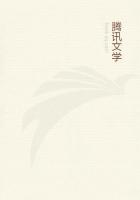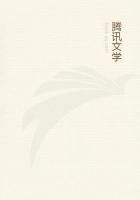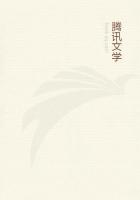The influence of a familiar and sequestered place is not only soothing; the bruised mind may often find it restorative. Thus Hedrick, in his studio, surrounded by his own loved bric-a-brac, began to feel once more the stir of impulse. Two hours' reading inspired him. What a French reporter (in the Count's bedroom) could do, an American youth in full possession of his powers--except for a strained knee and other injuries--could do.
Yes, and would!
He evolved a new chain of reasoning. The ledger had been seen in Laura's room; it had been heard in her room; it appeared to be kept in her room. But it was in no single part of the room. All the parts make a whole. Therefore, the book was not in the room.
On the other hand, Laura had not left the room when she took the book from its hiding-place. This was confusing; therefore he determined to concentrate logic solely upon what she had done with the ledger when she finished writing in it. It was dangerous to assume that she had restored it to the place whence she obtained it, because he had already proved that place to be both in the room and out of the room. No; the question he must keep in was: What did she do with it?
Laura had not left the room. But the book had left the room.
Arrived at this inevitable deduction, he sprang to his feet in a state of repressed excitement and began to pace the floor--like a hound on the trail. Laura had not left the room, but the book had left the room: he must keep his mind upon this point. He uttered a loud exclamation and struck the zinc table-top a smart blow with his clenched fist.
Laura had thrown the book out of the window!
In the exaltation of this triumph, he forgot that it was not yet the hour for a scholar's reappearance, and went forth in haste to search the ground beneath the window--a disappointing quest, for nowhere in the yard was there anything but withered grass, and the rubbish of other frost-bitten vegetation. His mother, however, discovered something else, and, opening the kitchen window, she asked, with surprise:
"Why, Hedrick, what on earth are you doing here?"
"Me?" inquired Hedrick.
"What are you doing here?"
"Here?" Evidently she puzzled him.
She became emphatic. "I want to know what you are doing."
"Just standing here," he explained in a meek, grieved way.
"But why aren't you at school?"
This recalled what he had forgotten, and he realized the insecurity of his position. "Oh, yes," he said--"school. Did you ask me----"
"Didn't you go to school?"
He began to speak rapidly. "Didn't I go to SCHOOL?
Well, where else could I go? Just because I'm here now doesn't mean I didn't GO, does it? Because a person is in China right now wouldn't have to mean he'd never been in South America, would it?"
"Then what's the matter?"
"Well, I was going along, and you know I didn't feel very well and----" He paused, with the advent of a happier idea, then continued briskly: "But that didn't stop me, because I thought I ought to go if I dropped, so I went ahead, but the teacher was sick and they couldn't get a substitute. She must have been pretty sick, she looked so pale----"
"They dismissed the class?"
"And I don't have to go to-morrow either."
"I see," said his mother. "But if you feel ill, Hedrick, hadn't you better come in and lie down?"
"I think it's kind of passing off. The fresh air seems to be doing me good."
"Be careful of your sore knee, dear." She closed the window, and he was left to continue his operations in safety.
Laura had thrown the ledger out of the window; that was proved absolutely. Obviously, she had come down before daylight and retrieved it. Or, she had not. Proceeding on the assumption that she had not, he lifted his eyes and searched the air. Was it possible that the book, though thrown from the window, had never reached the ground? The branches of an old and stalwart maple, now almost divested of leaves, extended in rough symmetry above him, and one big limb, reaching out toward the house, came close to Laura's windows. Triumph shown again from the shrewd countenance of the sleuth: Laura must have slid the ledger along a wire into a hollow branch. However, no wire was to be seen--and the shrewd countenance of the sleuth fell. But perhaps she had constructed a device of silk threads, invisible from below, which carried the book into the tree. Action!
He climbed carefully but with many twinges, finally pausing in a parlous situation not far from the mysterious window which Laura had opened the night before. A comprehensive survey of the tree revealed only the very patent fact that none of the branches was of sufficient diameter to conceal the ledger. No silk threads came from the window. He looked and looked and looked at that window; then his eye fell a little, halted less than three feet below the window-ledge, and the search was ended.
The kitchen window which his mother had opened was directly beneath Laura's, and was a very long, narrow window, in the style of the house, and there was a protecting stone ledge above it.
Upon this ledge lay the book, wrapped in its oil-skin covering and secured from falling by a piece of broken iron hooping, stuck in the mortar of the bricks. It could be seen from nowhere save an upper window of the house next door, or from the tree itself, and in either case only when the leaves had fallen.
Laura had felt very safe. No one had ever seen the book except that night, early in August, when, for a better circulation of air, she had left her door open as she wrote, and Hedrick had come upon her. He had not spoken of it again; she perceived that he had forgotten it; and she herself forgot that the memory of a boy is never to be depended on; its forgettings are too seldom permanent in the case of things that ought to stay forgotten.
To get the book one had only to lean from the window.














